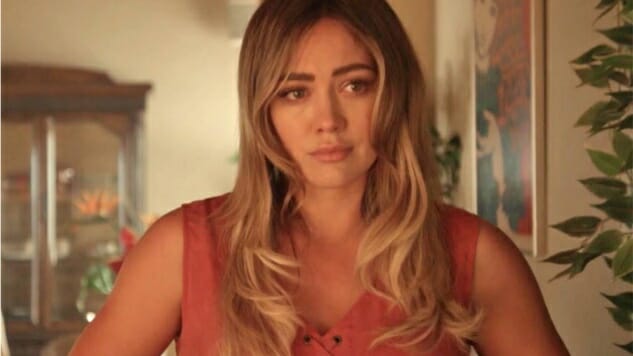The Haunting of Sharon Tate Exploits Real Tragedy for No Real Reason
The Manson Family murders grow more and more distant.

Note: This article contains spoilers for a Manson movie that does, for once, take a different approach to the proceedings.

It will be 50 years, come August, since the murders of Sharon Tate and the other people staying at 10050 Cielo Drive in Los Angeles. The bloody incident was a body blow to the psyche of well-off white America, a grotesque episode named by the thinkers of the time as the harbinger of the end of the free love ’60s. It was the first of two nights of murders that made Charles Manson and his “family” a lurid sensation. The man, the murders, and the women he brainwashed into committing them, have been the subject of countless films.
In half a century of obsessing over the incident, with Manson himself dead and the generation of filmmakers who actually remember his infamous moment going gray, what is there left to say about the Tate murders and the world they supposedly heralded the ending of? The Haunting of Sharon Tate seems like it wants to say something about getting a do-over after an unthinkable tragedy, or about the plight of a woman coddled and infantilized and ignored, or about an almost mystical quality to its dark antagonist. In casting Hilary Duff of all people, it signals that it wants to say something about the phenomenon of being a pop starlet in our own time. If any of those things are what it’s going for, though, it absolutely does not succeed, and it makes me even less thrilled for the other Manson-sploitation movie coming soon, Quentin Tarantino’s Once Upon a Time… in Hollywood.

There’s an intriguing kernel of an idea in The Haunting of Sharon Tate, one it would’ve been worth exploring even if it played around with the stories of murdered people whose surviving immediate family members are still very much alive. Because it’s been longer since these murders than the entire lifetime of the average Paste reader, it’s worth it to mention that Tate was a recognizable actor, having won a Golden Globe for her performance in Valley of the Dolls. At the time, she was living in the house she shared with Polanski along with former boyfriend Jay Sebring, Abigail Folger (of the family that owns the coffee company) and Wojciech Frykowski, who was Folger’s boyfriend and a mutual friend of Polanski’s. All were killed that night, along with 18-year-old Steven Parent, who was visiting.
In a (pretty inspired, really) casting choice, Hilary Duff portrays Tate, the pregnant wife of filmmaker Roman Polanski. She’s convincing enough as the actress in voice and manner, but she’s laboring in service to terrible dialogue and a script whose ideas never bother to cohere. In an opening scene that seeks to frame the whole endeavor, Tate sits for an interview wherein she recounts that she has dreamed of the murders a year prior to when they occur. We then jump forward to the days immediately leading up to the fateful night in question.
-

-

-

-

-

-

-

-

-

-

-

-

-

-

-

-

-

-

-

-

-

-

-

-

-

-

-

-

-

-

-

-

-

-

-

-

-

-

-

-









































